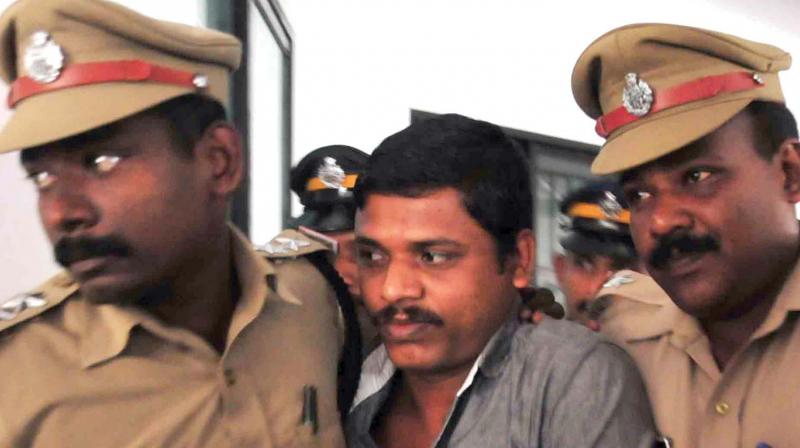Ameerul Islam guilty of Jisha's murder
In a case where there was no direct evidence, the court observed that DNA tech, call records helped in finding the accused guilty'.

Kochi: Ameer-ul-Islam, the labourer from Assam, was on Tuesday convicted of the murder of Dalit law student Jisha by the Ernakulam Principal Sessions Court, which found him guilty of trespassing into her house before brutally raping and murdering her on April 28 last year. Special Judge N. Anil Kumar found him guilty of causing death or persistent vegetative state of victim (Section 376 A), wrongful confinement (Section 342 IPC) and trespass (Section 449 IPC). However, the court observed the prosecution failed to prove charges of Destruction of Evidence (Section 201 IPC) and SC/ST Prevention of Atrocities Act 1989. The court is likely to pronounce the quantum of sentence on Wednesday after hearing the accused.
The crime occurred at the victim’s house in Vattolipadi, Iringolkkara, Perumbavur on April 28, 2016. Jisha, 30, was found dead in her two-room asbestos-roofed house by the side of a canal when her mother returned from work around 7.30 pm. In a case where there was no direct evidence, the court observed that the evidences especially that obtained through DNA technology and call data records submitted by the prosecution helped in finding the accused “guilty beyond a reasonable doubt”.
The court accepted the argument that Ameer-ul-Islam forcefully entered the house and committed the rape and murder between 5.30 pm and 6 pm.“…scientific evidences including DNA analysis clearly reveal that the accused was present in the house at the residence of the deceased on that fateful day and committed rape and murder. During trial, the accused had not offered any reasonable explanation warranting his presence at the residence of the deceased,” the court said. The Assamese native attacked her with a knife even as she was resisting the act tooth and nail. She finally succumbed to the injuries which included deep wounds to her genitals.
The defence unsuccessfully attempted to dispute the time of death and also establish that the murder was committed by Anarul Islam and Hardat Barua. However, the court observed that there are no such characters and rejected the arguments. The court also relied on post mortem finding that the body got ‘rigor mortis (a condition of stiffening of bones) on the fateful night itself which showed the crime was committed one or two hours earlier. The court trial lasted 85 days since the hearing began on April 4 last. The prosecution completed examination of 100 witnesses, including 15 migrant labourers. The prosecution presented 290 documents and 36 material evidences to back the case.

